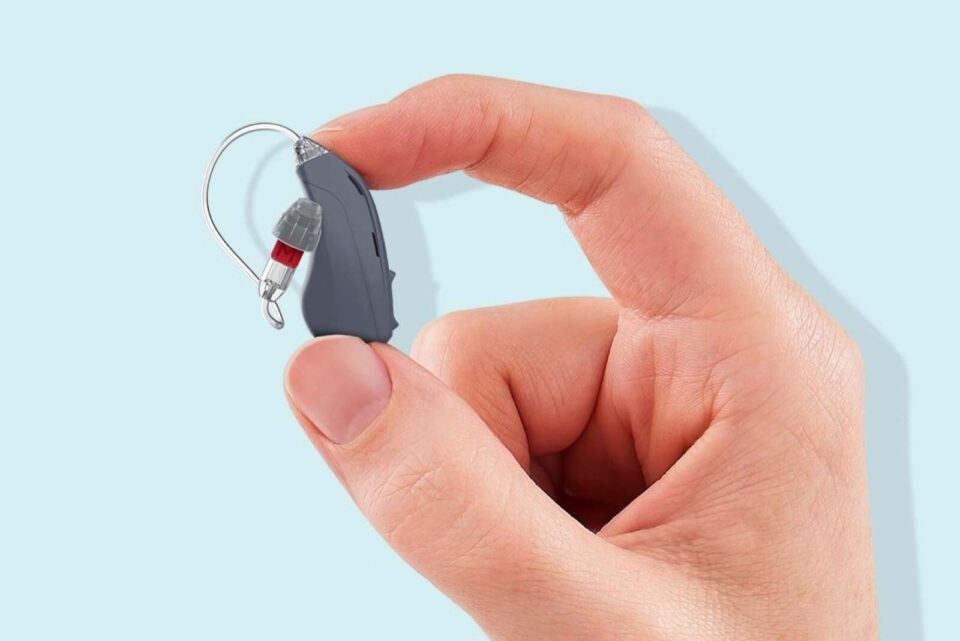- The Impact of Pets on Emotional and Hearing Health - April 26, 2024
- Strategies for Coping with Single-Sided Deafness - April 16, 2024
- Effective Strategies for Sharing Your Hearing Loss Journey - April 16, 2024
Hearing loss is a common problem that affects millions of people worldwide. It can significantly impact one’s quality of life, causing social isolation, depression, and cognitive decline. Fortunately, there are various treatment options available to manage hearing loss, and one of the most recent developments is Over-The-Counter (OTC) hearing aids.
In this blog post, we’ll explore what OTC hearing aids are, their pros and cons, who can benefit from them, and who should avoid them. We’ll also emphasize the importance of seeking professional guidance and the future implications of OTC hearing aids.
What are OTC Hearing Aids?
OTC hearing aids are amplification devices that can be purchased without a prescription. They are designed to help people with mild to moderate hearing loss, making them a suitable option for those who cannot afford or do not want to go through the traditional route of getting hearing aids.
OTC hearing aids are not the same as Personal Sound Amplification Products (PSAPs). PSAPs are not regulated by the FDA, and they are marketed as devices to enhance environmental sounds, whereas OTC hearing aids are regulated by the FDA, and they are designed to help people with hearing loss.
Pros and Cons of OTC Hearing Aids
As with any treatment option, OTC hearing aids have their pros and cons. Let’s start with the benefits.
Benefits of OTC Hearing Aids
Suitable for those with mild to moderate hearing loss: OTC hearing aids are designed to help people with mild to moderate hearing loss. If you have more severe hearing loss, prescription hearing aids may be a better option.
Convenience: OTC hearing aids are readily available and can be purchased online or at a local drug store. You don’t need to go through the hassle of scheduling appointments with a hearing professional.
Cost-effective: OTC hearing aids are generally less expensive than prescription hearing aids. They can be an excellent option for those who cannot afford the high cost of traditional hearing aids.
Limitations of OTC Hearing Aids
Unsuitable for children, those with profound or severe hearing loss, and those who cannot communicate or make medical decisions: OTC hearing aids are not recommended for children, people with severe or profound hearing loss, or those who cannot communicate or make medical decisions.
Doesn’t address underlying causes of hearing loss: When you purchase OTC hearing aids, you miss out on the opportunity to identify and address any underlying medical conditions that may be causing your hearing loss. A hearing professional can help you determine the root cause of your hearing loss and recommend appropriate treatment.
No professional setup or maintenance: Prescription hearing aids come with the benefit of professional setup and maintenance, which ensures that your hearing aids are optimized for your hearing loss and working correctly. With OTC hearing aids, you’re on your own when it comes to setup and maintenance.
Who Benefits from OTC Hearing Aids?
Now that we’ve explored the pros and cons of OTC hearing aids, let’s talk about who can benefit from them.
- Individuals with mild to moderate hearing loss: OTC hearing aids are designed to help people with mild to moderate hearing loss.
- Those who prioritize convenience: If you don’t want to go through the hassle of scheduling appointments with a hearing professional, OTC hearing aids can be a convenient option.
- People on a limited budget: OTC hearing aids are generally less expensive than prescription hearing aids, making them a great option for those on a limited budget.
Who Should Avoid OTC Hearing Aids?
While OTC hearing aids can be an excellent option for some people, they are not suitable for everyone. Here are some people who should avoid OTC hearing aids.
- Individuals with severe or profound hearing loss: OTC hearing aids are not powerful enough to help those with severe or profound hearing loss. If you have more severe hearing loss, prescription hearing aids may be a better option.
- Children: OTC hearing aids are not recommended for children. Children with hearing loss require specialized care and attention from hearing professionals who are trained to work with children.
- People unable to communicate or make medical decisions: If you are unable to communicate or make medical decisions, it may not be appropriate to use OTC hearing aids. A hearing professional can help determine the best course of treatment for your hearing loss.
In conclusion, OTC hearing aids can be a viable option for people with mild to moderate hearing loss who prioritize convenience and affordability. However, it’s essential to remember that OTC hearing aids are not suitable for everyone. Severe or profound hearing loss, children, and those who cannot communicate or make medical decisions should seek the care of a hearing professional.
It’s also essential to seek professional guidance when considering hearing treatment options. A hearing professional can help identify the underlying cause of your hearing loss and recommend appropriate treatment options. Additionally, prescription hearing aids come with the benefit of professional setup and maintenance, which ensures that your hearing aids are optimized for your hearing loss and working correctly.
At our hearing practice, we offer a wide range of hearing treatment options, including prescription hearing aids, tinnitus management, and hearing protection. We understand the importance of early treatment for hearing loss and the impact it can have on your quality of life. If you’re experiencing hearing loss, we encourage you to schedule an appointment with one of our hearing professionals.

